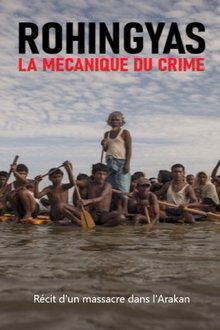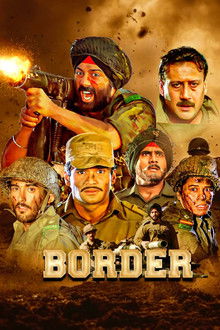A short documentary, charting Bangladesh's quest for freedom from Pakistan.
Related Movies

The Devil Came on Horseback (2007)
While serving with the African Union, former Marine Capt. Brian Steidle documents the brutal ethnic cleansing occuring in Darfur. Determined that the Western public should know about the atrocities he is witnessing, Steidle contacts New York Times reporter Nicholas Kristof, who publishes some of Steidle's photographic evidence.

Hotel Rwanda (2004)
Inspired by true events, this film takes place in Rwanda in the 1990s when more than a million Tutsis were killed in a genocide that went mostly unnoticed by the rest of the world. Hotel owner Paul Rusesabagina houses over a thousand refuges in his hotel in attempt to save their lives.
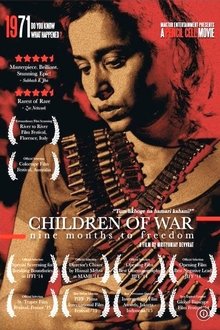
Children of War (2014)
Children of War is a movie based on the true events of the 1971 Genocide. Can we, in search of power, become animals? A genocide; neglected! The first use of rape as a weapon of war; undocumented! The lives of millions; unaccounted! The culprits; unpunished!
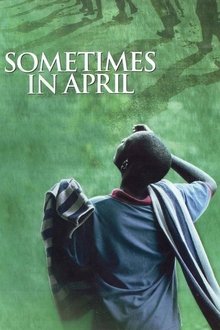
Sometimes in April (2005)
Two brothers are divided by marriage and fate during the 100 horrifying days of the 1994 Rwandan genocide.

The Diary of Immaculée (2006)
Peter LeDonne and Steve Kalafer chronicle the extraordinary life of Immaculée Ilibagiza, a young African woman who escaped genocide in Rwanda and ultimately found refuge in the United States. Seeking shelter with an Episcopalian minister, Immaculée hid from her attackers inside a bathroom for three long months but stayed centered through prayer and faith.

A Bunch of Questions With No Answers (2025)
A Bunch of Questions with No Answers (2025) is a 23-hour film by artists Alex Reynolds and Robert M. Ochshorn. Compiled entirely from questions posed by journalists at U.S. State Department press briefings between October 3, 2023, and the end of the Biden administration, the work removes the officials’ answers, leaving only the unresolved demands for clarity and accountability.

Architects of Denial (2017)
Though both the historical and modern-day persecution of Armenians and other Christians is relatively uncovered in the mainstream media and not on the radar of many average Americans, it is a subject that has gotten far more attention in recent years.

Elie Wiesel Goes Home (1997)
A documentary chronicling the adolescent years of Elie Wiesel and the history of his sufferings. Eliezer was fifteen when Fascism brutally altered his life forever. Fifty years later, he returns to Sighetu Marmatiei, the town where he was born, to walk the painful road of remembrance - but is it possible to speak of the unspeakable? Or does Auschwitz lie beyond the capacity of any human language - the place where words and stories run out?
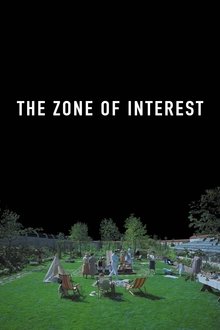
The Zone of Interest (2023)
The commandant of Auschwitz, Rudolf Höss, and his wife Hedwig, strive to build a dream life for their family in a house and garden next to the camp.

Plaasmoorde: The Killing Fields (2018)
Included in this groundbreaking work are interviews with active farm attackers and serving police officers who confirm corrupt police are complicit in the mass‐slaughter of South Africa’s whites. Their truths are horrifying—a man and woman branded with hot irons and left to die. A husband killed in front of his wife and children. An elderly woman raped, another with half her face blown off from a shotgun. And they all share a common thread: revenge. This is a disturbing documentary—it wrought both an emotional and physical toll on all involved. What’s more, Katie was detained at the airport in South Africa on the orders of the African National Congress (ANC) for her work on this project because Plaasmoorde is the story—the truth—they don’t want you to see. We owe it to the victims—to our fellow man—to listen and to open our eyes to the truth.

Last Words (NaN)
Linguist-philologist Mark Janse discovers speakers of the Cappadocian language – previously assumed extinct, linguists worldwide are exhilarated at the discovery, but Janse realizes the rediscovered language is doomed to die anyway.

Full Metal Jacket (1987)
A pragmatic U.S. Marine observes the dehumanizing effects the U.S.-Vietnam War has on his fellow recruits from their brutal boot camp training to the bloody street fighting in Hue.

The Decline of the Century: Testament L.Z. (1994)
An epic documentary of rise and fall of Ustasha regime in Croatia.
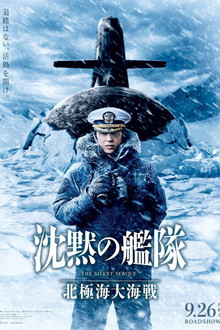
The Silent Service: The Great Sea Battle of the Arctic Ocean (2025)
Yamato submerges in the cold, deep northern seas with Mozart's music echoing. The nuclear-powered submarine, named the “Great and Powerful Peace,” overwhelmed the U.S. Seventh Fleet in the Battle of Tokyo Bay and set course for New York. As it approached the Bering Strait, the border between the U.S. and Russia, a submarine loomed behind Yamato... “Sink the nuclear terrorist Yamato!” It is a cutting-edge U.S. submarine, far superior to Yamato, sent by the U.S. President Bennett. At the same time, a general election is held in Japan to dissolve the House of Representatives. Prime Minister Takegami announces his support for Yamato, and the two will share the same fate, whether they remain or sink. Will Shiro Kaieda be able to overcome the greatest challenge of the voyage? Under the aurora borealis, in the Arctic Ocean with floating ice floes, the curtain rises on the battle to be fought.
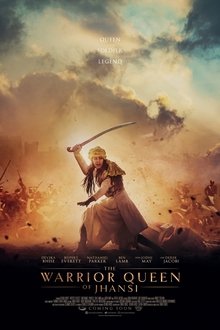
The Warrior Queen of Jhansi (2019)
The Warrior Queen of Jhansi tells the true story of Lakshmibai, the historic Queen of Jhansi who fiercely led her army against the British East India Company in the mutiny of 1857. From Queen Elizabeth to Queen Victoria, two-and- a half-centuries of East India Company rule will be reversed by its attempt to crush India’s Warrior Queen. Lakshmibai is known as one of the most prominent figures within the independence movement of India. The passion to free her province from colonial rule led this young woman to become one of the greatest generals of the Indian army, and to go down in history for her bravery, strategic acumen, and as a force to reckon with by the East India Company and the British Raj. The Warrior Queen of Jhansi is the story of the woman who lived and fought for the freedom of her people.
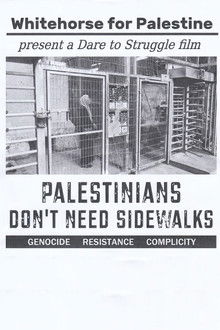
Palestinians Don't Need Sidewalks (2025)
A raw journey through occupied West Bank and East Jerusalem, this film profiles Palestinian life under Israeli aggression, exposing Australia’s complicity and media bias.
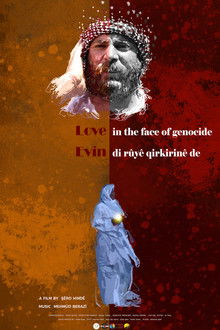
Love in the Face of Genocide (2023)
The Ezidîs (Yazidis) in Kurdistan have been the victims of massacres numerous times. This documentary follows their bards, the dengbêj, and examines how their songs tell stories of love and genocide.
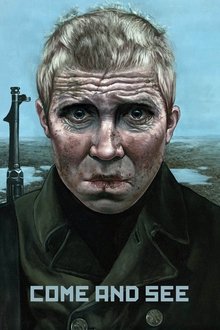
Come and See (1985)
The invasion of a village in Belarus by German forces sends young Florya into the forest to join the weary Resistance fighters, against his family's wishes. There he meets a girl, Glasha, who accompanies him back to his village. On returning home, Florya finds his family and fellow peasants massacred. His continued survival amidst the brutal debris of war becomes increasingly nightmarish, a battle between despair and hope.
